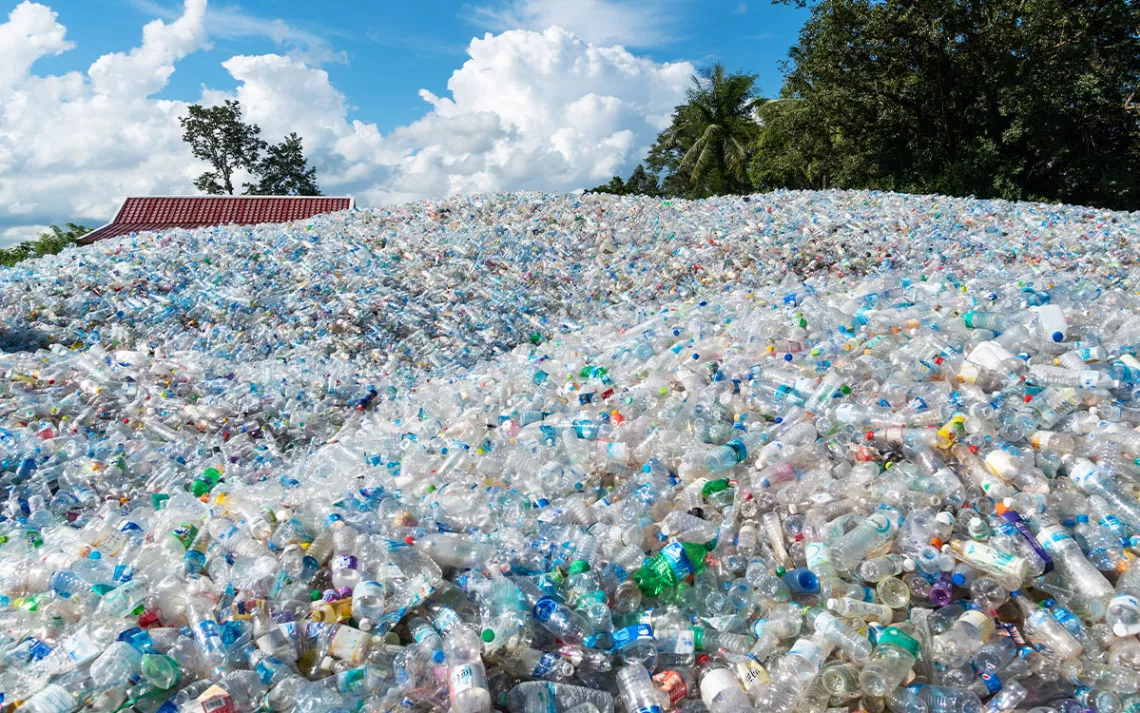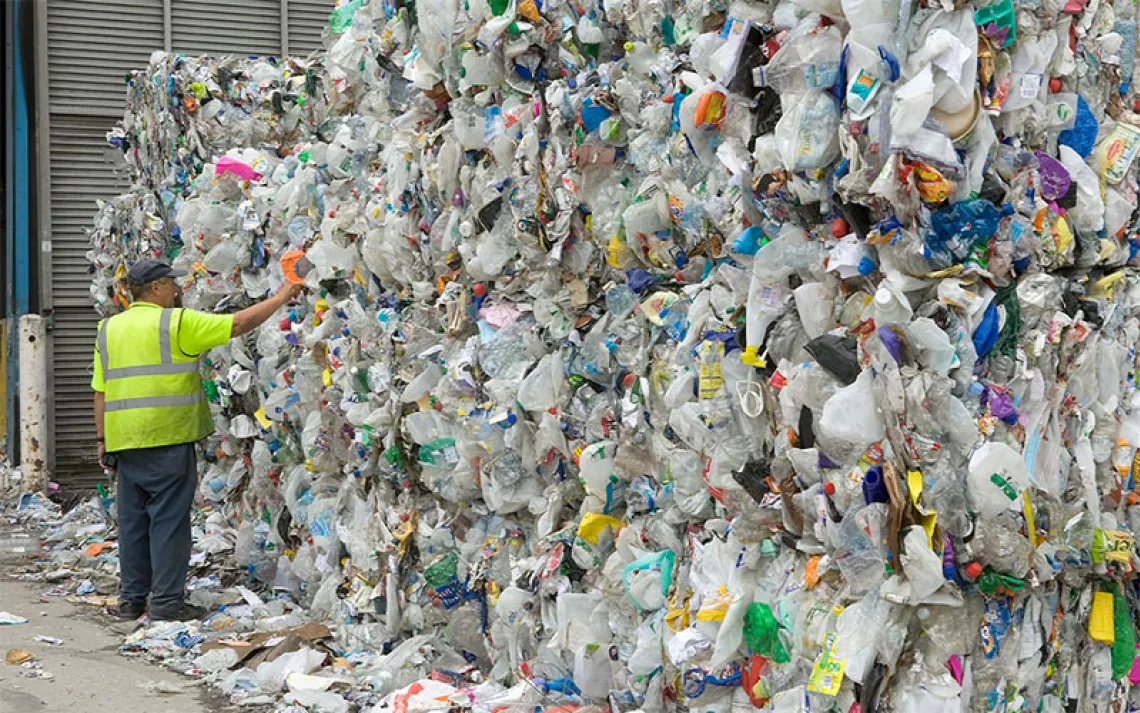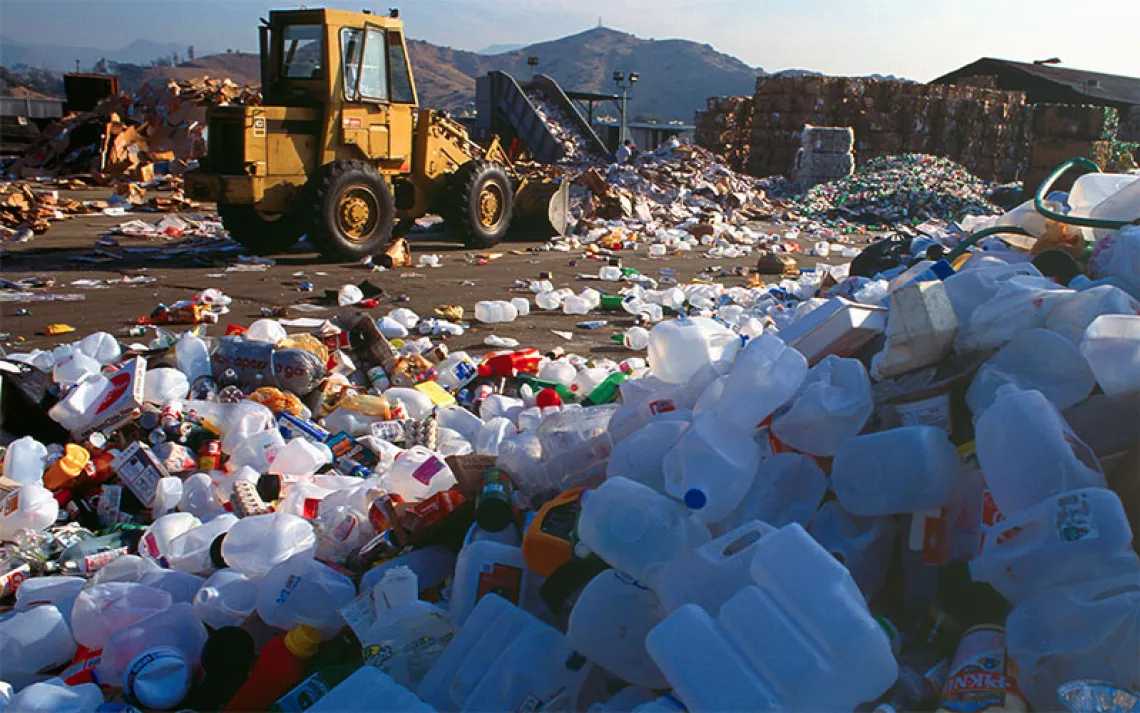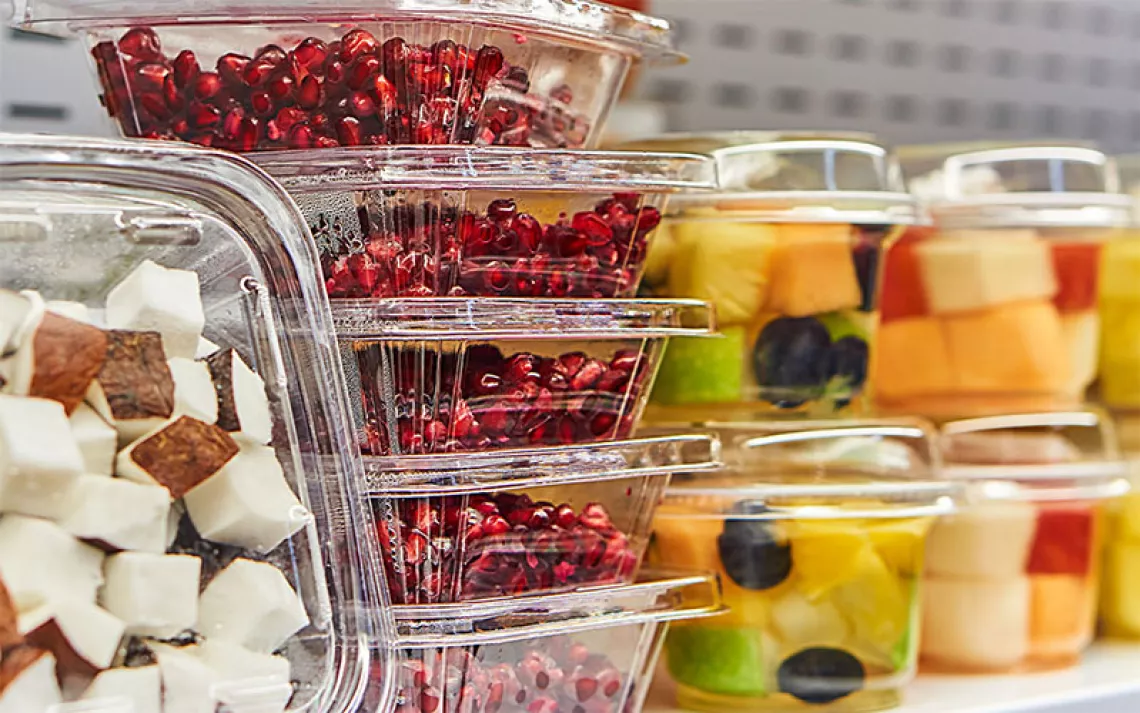Just Five Companies Produce Nearly 25 Percent of All Plastic Waste Worldwide
Coca-Cola, Nestlé top the list of plastic waste producers, according to new study

Photo by pressdigital/iStock
Companies across the world produce over 450 million metric tons of plastic each year, with much of it ending up in landfills, on the side of roads, in rivers, oceans, and streams. The material is so ubiquitous that there is often no clear way to trace it back to its manufacturer.
For a new study, researchers teamed up with over 100,000 volunteers across six continents to identify the most common sources of plastic waste. In a study published in Science Advances last month, they used data from brand information on plastic litter and found that 24 percent of the waste with an identifiable brand came from just five companies: Coca-Cola, PepsiCo, Nestlé, Danone, and Altria.
Over five years, volunteers in 84 countries analyzed over 1,800,000 pieces of plastic that they collected during clean-up events. Just over half the analyzed items had a visible brand. The rest were too degraded or simply never had brand information in the first place. Of the top five companies identified, Coca-Cola was the single most common source for plastic waste, representing 11 percent of the total branded waste found. According to the study, the food and beverage industry creates more plastic pollution than the household goods industry.
“For a long time, the conversation and the research has really been focused on end of line solutions,” said Win Cowger, lead author of the study and a research scientist at the Moore Institute for Plastic Pollution Research. “You’re having a lot more impact if you’re focused on upstream solutions, and those solutions really start with the production of plastic. That’s why we wanted to focus on brands, because that information is going to get us closer to those upstream solutions.”
The data researchers used in the study came from the Break Free From Plastic brand audit—a project that was launched in 2016 to hold companies accountable for plastic pollution. “The brand audit effort was really to challenge this narrative that plastic pollution can only be pinned on the end of the life cycle,” said Sybil Bullock, an associate campaign manager with Break Free From Plastic who coordinates the audit. “Rather, it’s important to look upstream at the companies who are producing this plastic in the first place.”
To complete the audit, volunteer groups separate the plastic waste with visible brand information from the unbranded counterparts. They then record the type of item, the brand, and its corresponding parent company using standardized methods. The volunteers submit that information to Break Free From Plastic. “It's very tedious,” Cowger said. “Every single piece of trash has to be characterized. Sometimes there's thousands of pieces of trash in one brand audit.”
Other efforts to collect and document brand data on plastic litter have offered mixed results insofar as the accuracy and availability of the data, said Keiron Roberts, a professor at the University of Portsmouth Revolution Plastics Institute who was not involved in the study. For this project’s volunteers to identify branding information in over 50 percent of the plastic is quite impressive.
Identifying the main polluters can help develop specific goals for how much these companies need to reduce their plastic production, according to Roberts.
Martin Thiel, a researcher with the Smithsonian Environmental Research Center and a coauthor of the paper, said that coordinating a citizen science project involves a lot of training and follow up. But these projects allow volunteers to learn about scientific principles, engage in critical thinking, and gain the knowledge necessary to advocate for their interests.
“If we are talking about the whole world, then it's not going to be possible for one research team to do it; you need collaboration,” Thiel said. “And collaboration always means communication, listening to different viewpoints, hearing different experiences, seeing where you are, and looking where the others are. That is always so empowering.”
Asked for a response to the findings, Coca-Cola sent Sierra an email pointing to sustainability goals in its “World Without Waste” corporate program. The goals include making packaging recyclable globally, using at least 50 percent of recycled material in their packaging, and increasing the use of reusable and returnable packaging. The program and its goals are not part of an independently verifiable or enforceable regulatory regime.
A Nestlé spokesperson said the company is working to address plastic pollution by reducing its use of virgin plastic in addition to other recycling initiatives across the world. Danone said in a statement that the company is lowering its plastic use and increasing the recyclability of its packaging. They also pointed out the systematic barriers to reducing plastic waste. PepsiCo did not respond to Sierra’s request for comment.
Altria, a tobacco company, disagrees with the findings. In an email, a spokesperson said that the study data includes 80 countries, but its cigarette company Philip Morris USA, which owns brands such as Marlboro and Parliament, only operates in the United States, making it impossible for it to be responsible for 2 percent of the world’s branded plastic pollution. Cowger pointed out that Philip Morris International separated from Altria in 2008, though it owns the same brands in different countries. The methods in the paper are such that if companies own the same products and the same brands, they are combined. Also, Cowger said that just because litter is found in another country doesn’t mean it originates in that country.
For the study, researchers compared the audit data with numbers from the Ellen MacArthur Foundation, which collects information from consumer goods companies that disclose their plastic production. There was a one-to-one relationship between the amount of plastic produced and the amount of plastic litter analyzed in this study. This shows that the companies’ efforts to reduce plastic waste in the environment aren’t working.
The new study was published while the fourth Intergovernmental Negotiating Committee on Plastic Pollution was in session in Ottawa to negotiate a global plastic treaty. The current draft text of the treaty indicates a plan to limit the amount of plastic production. Companies and countries that produce fossil fuels, which are used to make plastics, strongly object to this element. Those groups want a focus on recycling, reuse, and a move toward a circular economy. The last meeting to finalize the treaty is set to take place this fall in South Korea.
“All the companies are performing the status quo. Very few are strong outliers,” Cowger said. “To solve the plastic pollution problem, we’re going to have to tackle status-quo-level issues and change the way society operates.”
 The Magazine of The Sierra Club
The Magazine of The Sierra Club



